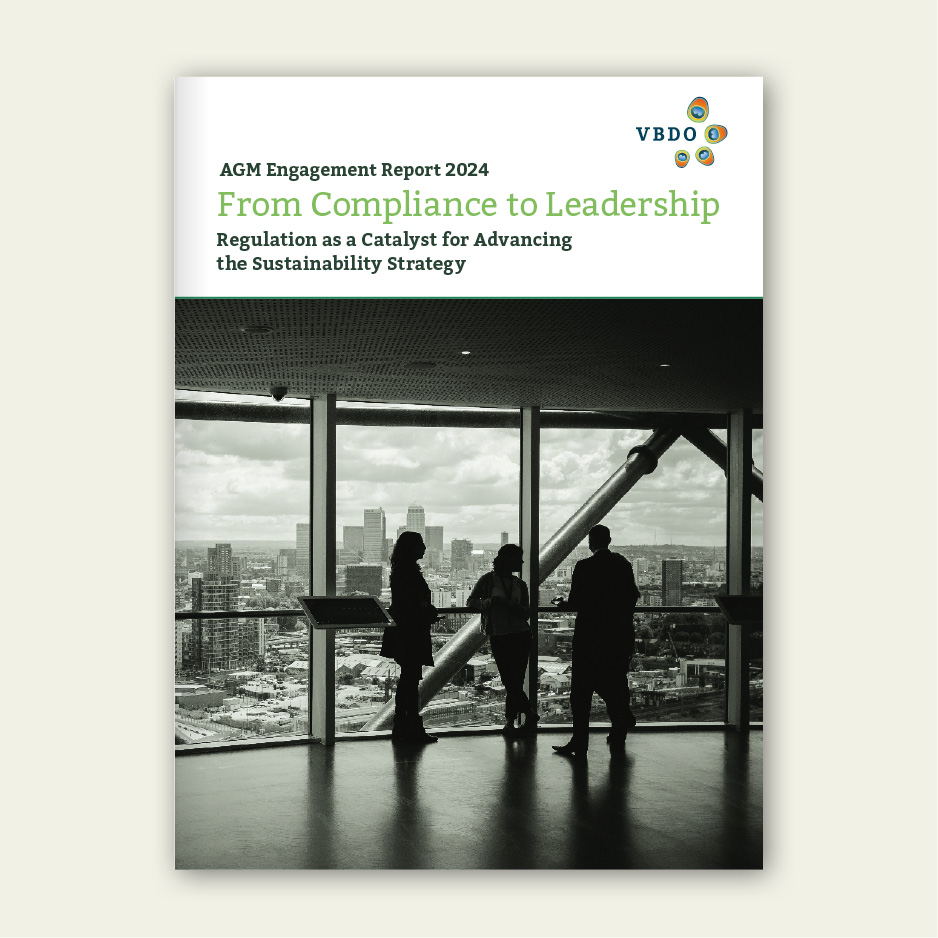If not labelled as material for new European legislation, the Corporate Sustainability Reporting Directive (CSRD), companies are falling behind with action and reporting on sustainable themes. This became evident from research by the Association of Investors for Sustainable Development (VBDO), among 30 Dutch-listed companies. The association attended shareholder meetings and questioned companies on biodiversity, living wages and lobbying.
Biodiversity is important but not necessary
“Companies must make choices when implementing the CSRD,” said Angélique Laskewitz, director of the VBDO. ‘The themes we asked about are not always characterized as material for the CSRD. We are then told that, for example, extensive and specific biodiversity policy is seen as “important, but not necessary”.
According to the report, companies are making progress on the theme of biodiversity. For example, almost half of the parties surveyed have formulated objectives or KPIs on the subject, compared to 30% in the previous year. More than 8 in 10 companies now also mention it in their strategy. Yet less than one-third of the parties surveyed characterize it as a material topic for the CSRD.
Looking beyond your own services
Laskewitz: ‘We believe that biodiversity should be a material theme for almost every company. The point is that there is still a big challenge ahead. It is often extremely complex for large companies to map all the risks and opportunities in their supply chain. We expect companies to take that step quickly. In any case, we would like to recommend that they include biodiversity in their risk assessments. This also applies to other themes, such as living wages.
Living wage still in its infancy
Dutch companies still pay little attention to living wages, the report shows. Just over half of the companies surveyed have included it in their strategy. This mainly concerns our own employees, while the problems often lie in the supply chain. Companies also seem to be still trying to figure out how they can best deal with this theme. According to the report, collaboration with stakeholders within and outside the sector, such as with NGOs, can provide a solution to this.
According to Laskewitz, there is another explanation for the lack of policy on this theme. ‘European legislation will soon be introduced for critical evaluation and reporting on suppliers, namely the Corporate Sustainability Due Diligence Directive (CSDDD). The implementation of this legislation will not take place until 2027 and does not yet feel urgent for companies. Yet we hear from companies that they will report on this with more transparency in the coming years. It is also important that they regularly engage in discussions with stakeholders. A good example of collaboration on this theme is the Living Wage Platform Financials, to which VBDO is proud to contribute.’
Whether or not to use CSRD strategically
The CSRD offers the opportunity for enormous, strategic added value. The legislation encourages companies to critically introspect into short- and long-term risks and opportunities in sustainability. In this way, it can be meaningfully integrated throughout the entire company, the VBDO endorses.
However, when the legislation is used as a checklist, this value disappears. Ultimately, it is up to companies themselves how they implement the legislation, the study states. That is, merely addressing compliance, or using it as a springboard to sustainable corporate leadership.

